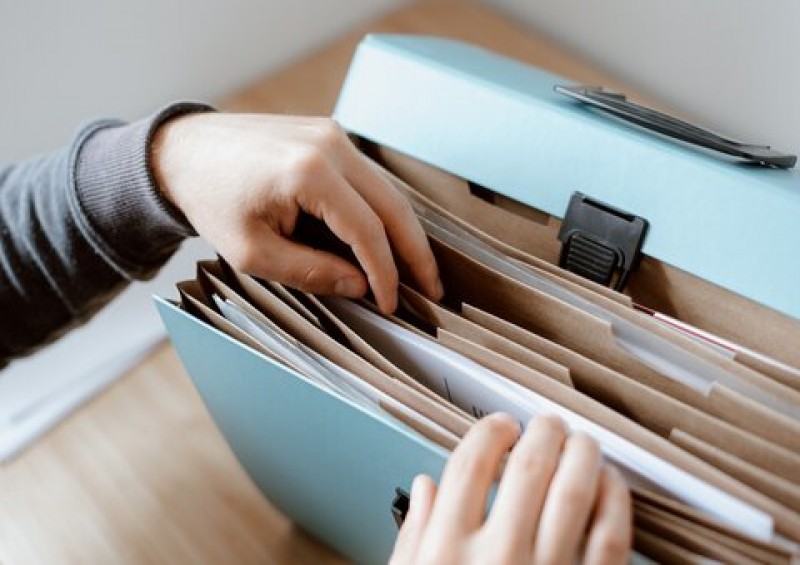Finding and obtaining a copy of a will

When a loved one dies and you’re left in charge of applying for probate in order to be able to deal with the deceased’s estate, you must present an original copy of their will in order for your application to be approved.
However, there are some circumstances when you might not be able to locate an original will and if a will is missing, you might be wondering whether lawyers keep original copies of wills so that you can obtain it from them.
In our guide below about how to obtain a copy of a will, we’ll share our top tips for will finding, as well as what to do if the original will is lost or missing.
How to get a copy of a will
Usually, when someone creates a will, the person/s that they appointed as executor of their will are told where the will is stored so that when they die, the executors are able to locate the will in order to carry out their duties as executor.
Unfortunately, it’s not always quite as straightforward as that and if you’ve been named as the executor of someone’s will but they didn’t inform you about the location of their will, you will likely be tasked with searching through the deceased’s paperwork and documents to try and find it.
However, if you’re unable to locate the will and the deceased created their will with the help of a professional or solicitor, you can usually ask them for the original will. It’s also worth checking whether the deceased kept their will with their bank if you cannot locate it in their home or from a solicitor.
Before you’re able to obtain the will from either a solicitor, professional will writer or a bank, you must be able to prove who you are and that you’re the executor of the will by showing a form of identity as well as showing the deceased’s death certificate.
Only executors of a will have the authority to see the will at first and then they can decide when to share the contents of the will.
In some cases, however, the original will may not be found and in this instance, you may be able to submit a copy of the will if it has been signed by an appropriate entity.
In order to use a signed copy of the will to apply for probate with the Probate Registry, you will need to provide evidence of necessary paperwork before the Probate Registry can grant you permission for probate. Sometimes, a copy of the will won’t be enough and you may have to provide further evidence.
If you are applying for probate by using a copy of a will, you will need to submit an Affidavit which is a document detailing the following:
- The reasons and circumstances surrounding the lost original will. E.g. why you are unable to find it.
- How you have attempted to find and obtain the original lost will.
- Relevant details of the person/s who would benefit from the deceased’s estate if the original will cannot be located and a copy of the will was not permitted (for example, anyone who would benefit from the rules of intestacy if they were not originally listed as an intended beneficiary in the original will).
Does the attorney keep the original will?
If someone writes their will with the aid of a lawyer or solicitor or will-writing professional, the legal entity should at least keep a copy of the will.
In some cases, some people decide to keep their original will with their solicitor so that in the event of their death, they know that it’s in a safe place and the executor of the will knows where to find it.
Some people even give the original will to the executor once they have written it so upon the event of their death, the will is already in the hands of the executor which makes the whole process much easier to handle.
Is a copy of a will valid?
A copy of a will may be viewed as valid if the following can be met and proved when applying for probate:
- If the executor can prove the death of the person in question by showing their death certificate.
- If the copy of the will fulfils the needs of an original, valid will and it includes the contents of a valid will.
- If a thorough search has been carried out to try and locate the original will and you can prove that you’ve spent time exhaustively looking for it.
- If it can be proved that the person who died (the testator) did not revoke or destroy the original will.
If the above criteria can be met, then it is possible that a copy of a will will suffice, but it’s usually required that an original will be presented in order to make the whole process much quicker and seamless.
What happens if you can't find an original will?
If you are unable to find and obtain the original will, you will need to abide by the rules of intestacy which are the inheritance rules if someone dies without a will or if you’re unable to find the original will and a copy of the will won’t suffice.
These inheritance rules show who stands in line to inherit what from the deceased’s estate and the order is usually as follows:
- Spouses and civil partners
- Children
- Grandchildren
- Great-grandchildren
- Other relatives such as aunts, uncles, cousins.
According to the rules of intestacy, unmarried partners, relations through marriage, close friends or carers are unable to inherit anything from the deceased. Even if they were in line for inheritance according to the original will, if it cannot be proven and the rules of intestacy come into place due to a lost will, they will not stand to inherit anything.
